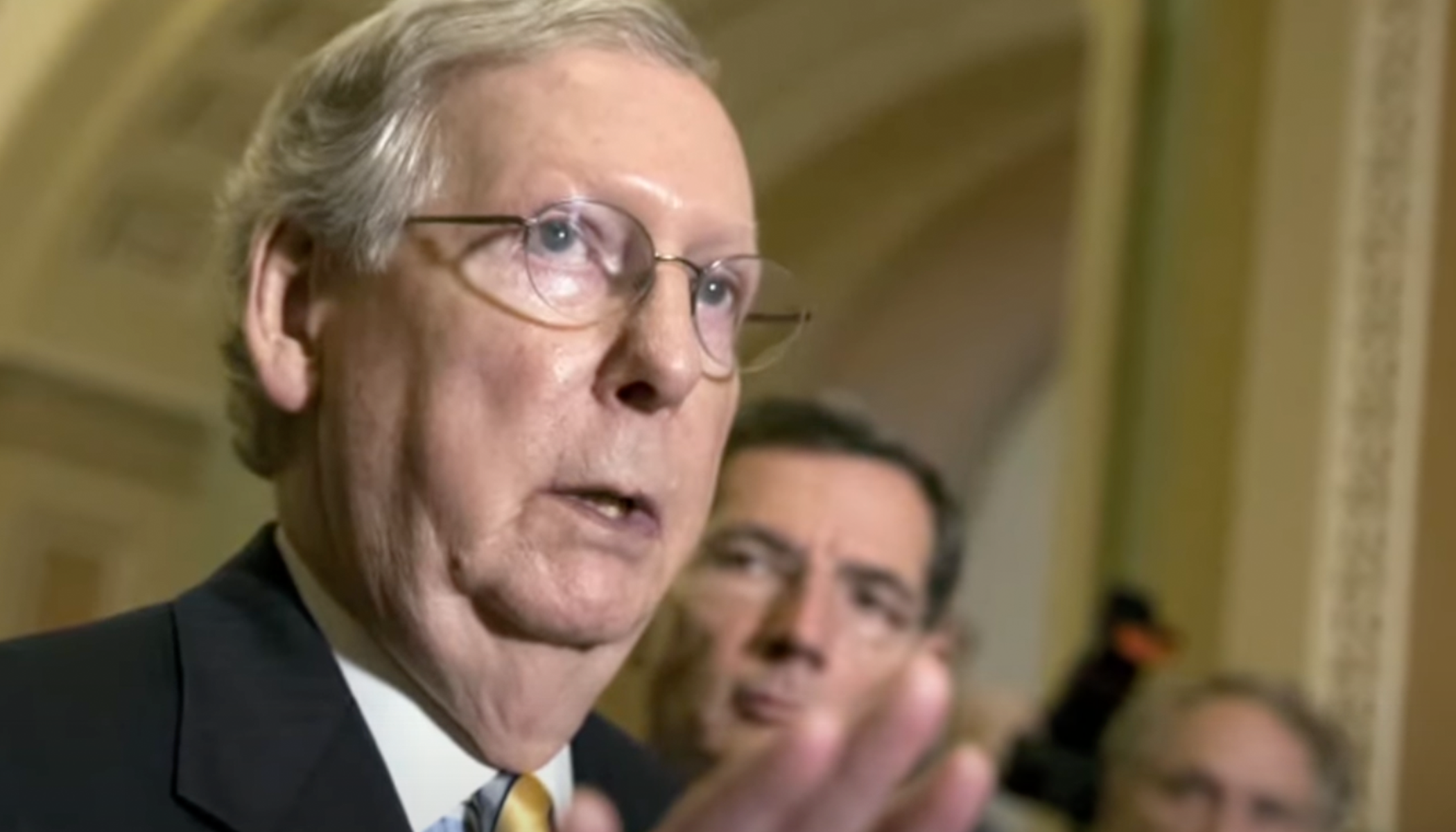Trump Emerges as Moderate, Harris Struggles to Break Perception of Extremism
Kamala Harris's presidential campaign is facing significant challenges as it tries to position Donald Trump as the extreme candidate in the race.
Despite these efforts, recent polling data shows that voters are perceiving Harris as more extreme than Trump, with the former president, long associated with hardline conservative policies, managing to shift public perception, painting himself as a moderate alternative, as Tiana Lowe Doescher of the Washington Examiner reports.
In a recent national poll conducted by the New York Times and Sienna College, Trump leads Harris by a slim margin, highlighting the growing difficulty the VP faces in reshaping her image among voters.
Polling Data Reveals Perception Gap
Harris’s campaign has been focused on highlighting Trump’s track record, particularly targeting his policy decisions as extreme. However, polling data suggests that this strategy is not resonating with voters. According to the latest figures, less than a third of likely voters see Trump as too conservative, while nearly half believe Harris is too progressive. This perception spans nearly every demographic, with only voters under 30 viewing Harris as less extreme than Trump.
Interestingly, the Hispanic voter demographic plays a critical role in this gap. According to the poll, 39% of Hispanic voters view Harris as too progressive, while only 32% see Trump as overly conservative. This shift in sentiment is particularly significant given the increasing importance of Hispanic voters in national elections.
Harris Struggles with Policy Messaging
Harris’s record in the Senate, where she was often considered the most liberal member, has been a key target for Trump’s campaign. Trump has frequently linked Harris to the Biden administration, casting himself as a moderate alternative to the current presidency. In particular, he has focused on Harris’s support for policies like Medicare for All and the Green New Deal, both of which are perceived by many voters as progressive stances.
Complicating Harris’s campaign is her support for federally codifying legal abortion up until birth, a stance that is largely unpopular with the electorate. Polling data shows that only 20% of voters support late-term abortion, making this a challenging issue for her to navigate. On the other hand, Trump has distanced himself from the federal abortion debate, criticizing state-level restrictions but not pushing for nationwide bans, a move that has helped him appeal to more moderate voters.
Voters Tie Harris to Biden's Policies
One of the major hurdles for Harris is the association many voters make between her and the current Biden administration. Voters are increasingly frustrated with issues like rising prices, the ongoing border crisis, and the chaotic withdrawal from Afghanistan. According to the polls, a majority of voters believe Harris should share some of the blame for these challenges, a perception that has proven difficult for her campaign to overcome.
At the same time, voters are expressing a desire for major change from the status quo. Trump, with his promises of breaking from the current administration’s policies, is seen as a candidate who represents that change. Harris, by contrast, is viewed as an extension of the Biden administration, and this association may be hurting her chances of redefining herself as a candidate capable of delivering significant reforms.
Trump Leads on Key Issues
When it comes to key issues such as the economy, which remains the top concern for many voters, Trump holds a significant lead over Harris. His economic messaging, combined with his ability to distance himself from the unpopular aspects of the Biden administration, has allowed him to capture a growing number of supporters who may have previously been hesitant to back him.
On the other hand, Harris does hold an edge over Trump on issues such as addressing racial inequality, bringing the country together, abortion, and healthcare. These are important topics for a segment of the electorate, but they have not been enough to give her a commanding lead in the race.
Progressive Alliances Hurt Harris
Harris’s past alliances with progressive leaders such as Bernie Sanders have also become a point of contention for her campaign. Her co-sponsorship of bills like Medicare for All and the Green New Deal, which are popular among progressives, may be undermining her ability to appeal to more moderate voters. Trump’s campaign has seized on this, painting her as out of step with mainstream America.
Sen. Bernie Sanders himself commented on Harris’s strategy, saying, “I think she is trying to be pragmatic and do what she thinks is right in order to win the election.” However, despite these efforts, voters remain skeptical. Polls indicate that many view Harris’s policy positions as inconsistent, and her attempt to align with Trump on certain issues has not reassured them.
Harris Faces Growing Trust Deficit
The inconsistencies in Harris’s campaign messaging have led to a growing trust deficit with voters. Many feel that while she is attempting to appeal to moderates, her record and policies tell a different story. This lack of trust is reflected in the polling data, which shows that voters are not convinced Harris can deliver the type of pragmatic leadership she claims to represent.
Trump, on the other hand, has successfully labeled Harris as the extreme candidate in the race. With the upcoming debates offering him an opportunity to further highlight her policy failures, Harris faces an uphill battle to shift voter perceptions.
Conclusion: Trump Capitalizes on Moderation
In conclusion, Kamala Harris’s presidential campaign is grappling with significant challenges as it tries to define Donald Trump as the extreme candidate.
Polling data suggests that many voters, including key demographics such as Hispanic voters, view Harris as the more extreme option.
With Trump casting himself as a moderate and leading on issues like the economy, Harris’s record, particularly her progressive stances, has proven to be a stumbling block in the race. Voters’ desire for change from the Biden administration further complicates her path forward.
Ultimately, Harris will need to overcome the perception of extremism if she hopes to win over a broader coalition of voters.






